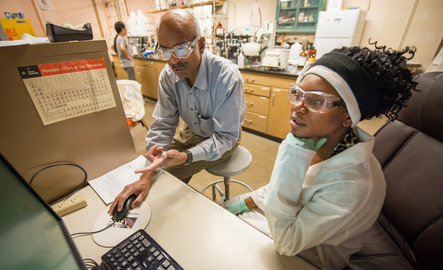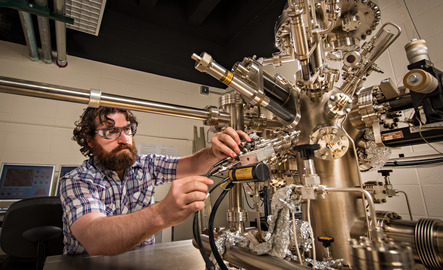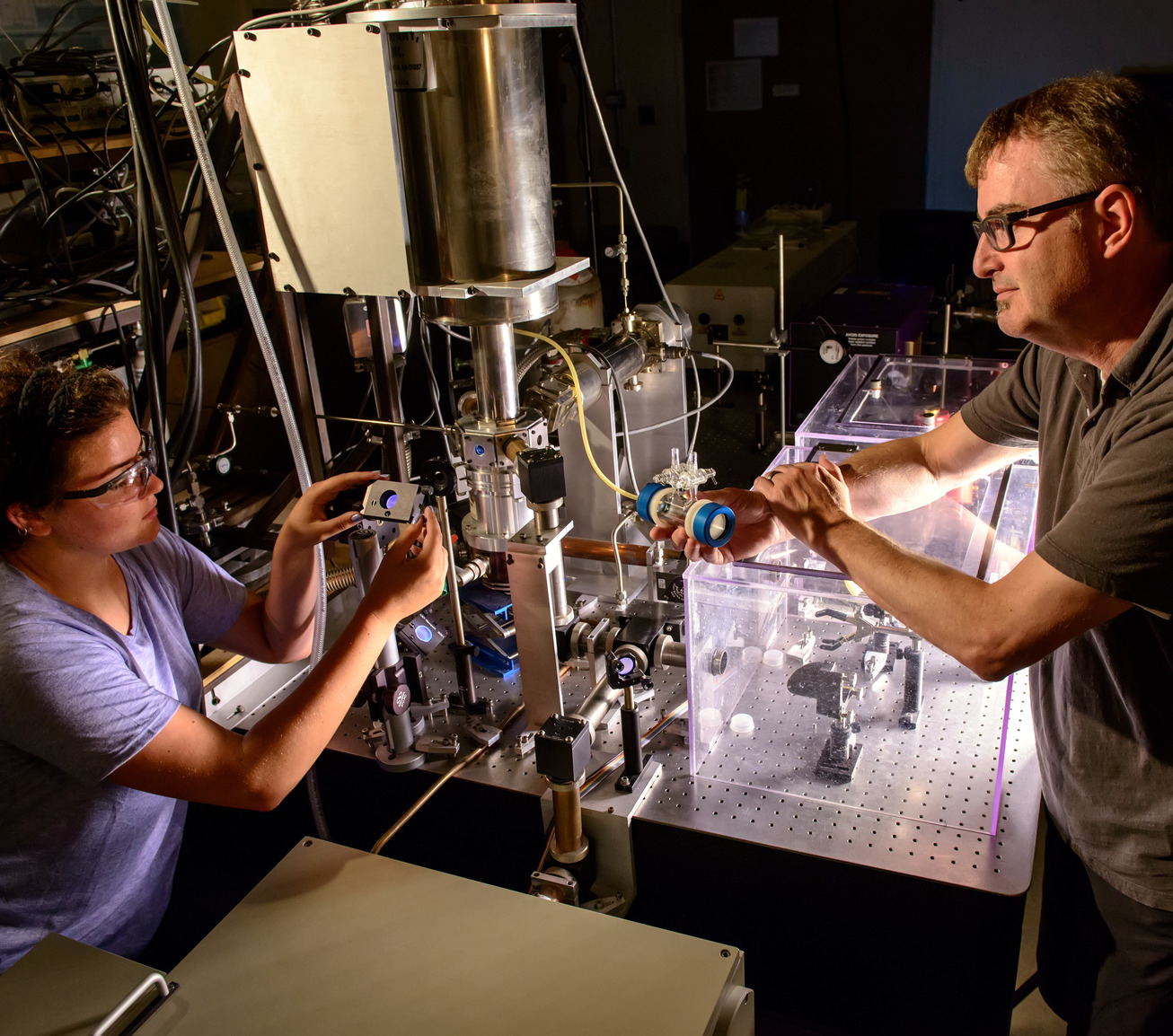About UW's Chemistry Ph.D. Degree
Our faculty emphasize working closely with your colleagues and advisor with respect to not just your research project, but also your growth as an aspiring professional chemist. As a result, you will receive ample hands-on training and opportunities for professional development. Graduate students admitted into our program receive full funding, including tuition and fee waivers, as well as student health insurance. Campus is conveniently located between two scenic mountain ranges and within a two-hour drive to Denver.

What you need to apply for the Chemistry Ph.D. program at UW:
- Resume or CV
- Undergraduate transcript
- A personal statement including why you want to pursue a Ph.D., why Wyoming is a good fit for you and what experiences have prepared you for graduate school
- TOEFL/IELTS for non-native English speakers

The Department of Chemistry, located in the Physical Sciences Building at UW, houses all the facilities necessary to carry out world-class research. Each research-active faculty member maintains a laboratory space designed to meet the unique needs of their research. In addition, the department maintains a number of shared instrumentation facilities:
- NMR: The Nuclear Magnetic Resonance (NMR) facility houses three research-grade Bruker Avance III NMR spectrometers (600 MHz, 400 MHz, and 300 MHz wide-bore).
- X-Ray Diffraction: Bruker-AXS Smart Apex II w/ Oxford Cobra Cryosystem and Bruker D8 Venture (dual-source Cu/Mo) w/ Oxford Crysostream 800
- Mass Spectrometry: A number of mass spectrometry systems are available spanning a wide variety of ionization and detection methods.
- X-Ray Photoelectron Spectroscopy: Kratos Ultra DLD
- Electron Microscopy: FEI Tecnai G2 F20 200 kV TEM, FEI Helios 5 UX Focused Ion Beam-Scanning Electron Microscope and FEI Talos F200X Transmission Electron Microscope
- High-Performance Computing: The department of chemistry regularly utilizes the Teton High-Performance Computing cluster for computational tasks, and maintains licenses for software packages such as GAUSSIAN and COMSOL.

What Can You Do With a Ph.D. in Chemistry?
A Ph.D. in chemistry can lead to careers in academia, industry or government research. Beyond deep scientific expertise, the program builds strong skills in writing, communication and critical thinking, opening doors to a wide range of scientific fields.
- Staff scientist
- Research scientist
- Process engineer
- Product manager
- University faculty
- Principal Investigator
- Director of Research and Development
- Materials Scientist
- Medicinal Chemist
- Computational Chemist
- Regulatory Affairs Manager
- Science Policy Advisor
- Patent Agent or Technical Consultant
- Senior Analytical Chemist
- Laboratory Director
- Scientific Editor or Writer
- James Madison University
- City University of New York Brooklyn College
- Colorado State University-Pueblo
- Intel
- Argonne National Laboratory
- Northwestern University
- Columbia University
- Los Alamos National Laboratory
Earning a Ph.D. in chemistry at UW typically takes five years to complete. Most students enter the Ph.D. program immediately following their bachelor's degree studies (a master's degree is not required for admission). The doctoral program in chemistry is a research-intensive degree that is similar to an apprenticeship. While students do take some coursework, the majority of their time is spent working closely with a faculty advisor on a research project. Along the way, students will author publications in scientific journals, travel to share their work at conferences, and ultimately become recognized experts in their field.
- Analytical Chemistry
- Biological Chemistry
- Inorganic Chemistry
- Organic Chemistry
- Physical Chemistry
Learn Alongside Experts In their Field
The Department of Chemistry is home to research-active faculty members whose work spans all traditional areas of chemistry. These faculty are world-renowned experts in fields such as chemical and materials synthesis, catalysis, sensing, biology, and solar energy conversion.
“UW Chemistry Department is an intimate group of chemists who work very closely with scientists and engineers from the wider UW research community. The access to faculty and scientific facilities at UW is outstanding. This fosters a conducive environment for their graduate students to explore, expand and succeed in their chosen discipline. The access to a network of researchers afforded due to the small and intimate nature of the chemistry department within UW and outside, be it at national labs or in industry, is what makes UW chemistry department a truly exciting place to hone your skills and build a successful career as PhD scientists."
- Yagya Regmi | Ph.D. '15 | Research fellow, Manchester Fuel Cell Innovation Centre, United Kingdom


